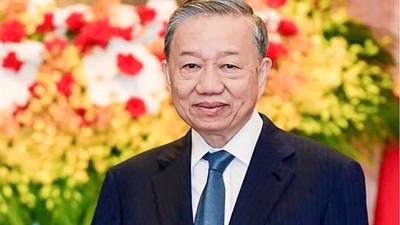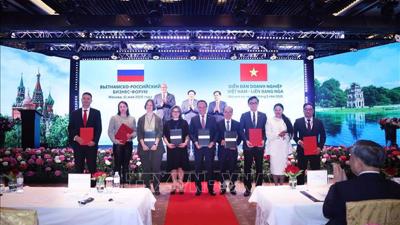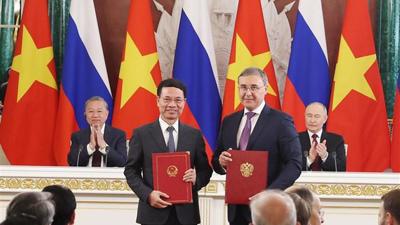Vietnam Seeks Green Growth Leadership, FDI Firms Pledge Support
At the Vietnam Business Forum, government and foreign investors align on green transformation, highlighting both momentum and challenges.
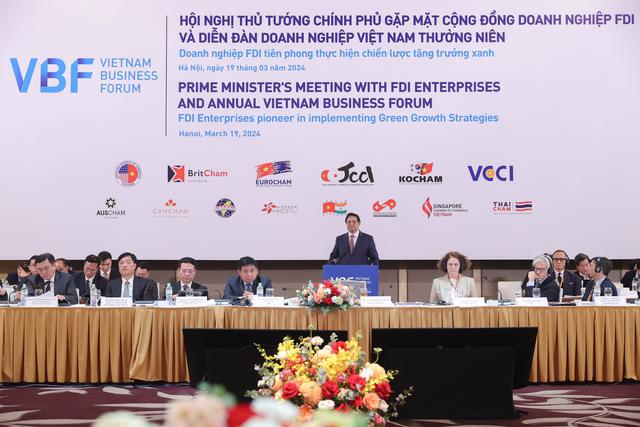
In Vietnam, green growth is not merely a choice but a chance to emerge as a regional trailblazer, according to Minister of Planning and Investment Nguyen Chi Dung.
Speaking at the annual Vietnam Business Forum themed "Pioneer FDI Enterprises implementing the Green Growth Strategy," organized by the Ministry of Planning and Investment of Vietnam, the World Bank Group (WB), and the International Finance Corporation (IFC) on March 19 in Hanoi, Minister Dung underscored the imperative nature of this shift.
Recognizing the significance of green growth for Vietnam's future, the government has endorsed the National Strategy on Green Growth for the period 2021-2030, with a vision extending to 2050. This strategy places the business community at the forefront, acknowledging its pivotal role.
Given their capital, technology, management expertise, market reach, Foreign Direct Investment (FDI) enterprises are positioned to lead and support domestic companies in aligning with the goals of the Green Growth Strategy, as per Minister Dung's assessment.
In recent years, the business sector has taken tangible steps towards green growth, such as adopting clean energy, eco-friendly materials, and investing in advanced production technologies to minimize resource usage and emissions.
Minister Dung emphasized Vietnam's enormous potential in green growth, leveraging its geographical and economic advantages within the global supply chain. This transition not only propels Vietnam forward but also underscores its commitment to environmental sustainability and economic prosperity.
Green Growth serves as a linchpin for realizing the objectives outlined in Vietnam's 10-year Socio-Economic Development Strategy (2021-2030). It presents an opportunity for Vietnam to foster innovation, drive comprehensive economic transformation, and enhance sustainability across the economy and within individual enterprises.
VBF Co-chair and President of the Vietnam Chamber of Commerce and Industry Pham Tan Cong echoed these sentiments, emphasizing the business community's alignment with the government's growth objectives, particularly in green growth initiatives for 2024 and beyond.
Thomas Jacobs, Country Manager at IFC, lauded Vietnam's strides in green growth, highlighting its significance in a global shift towards sustainability amidst climate change challenges. He stressed the vital role of FDI enterprises in introducing new technologies and ideas to drive resilience and sustainability.
The European Chamber of Commerce in Vietnam (EuroCham) commended Vietnam's resilience amid global uncertainties, positioning it as a leader in sustainable economic development. The European Union-Vietnam Free Trade Agreement (EVFTA) has further bolstered Vietnam's attractiveness to investors, with EuroCham members ranking Vietnam among the top global investment destinations.
Denzel Eades, Vice Chairman of the British Chamber of Commerce Vietnam (BritCham), applauded Vietnam's commitment to sustainability and pledged British support in critical sectors such as energy, finance, and healthcare.
Japan, in upgrading its relations with Vietnam to a Comprehensive Strategic Partnership, has expressed hopes for stronger Vietnamese participation in the global supply chain. Muto Shiro of the Japanese Chamber of Commerce and Industry in Vietnam (JCCI) emphasized the need for Vietnam to focus on infrastructure, human resources, and social security to drive green growth and sustainable development.
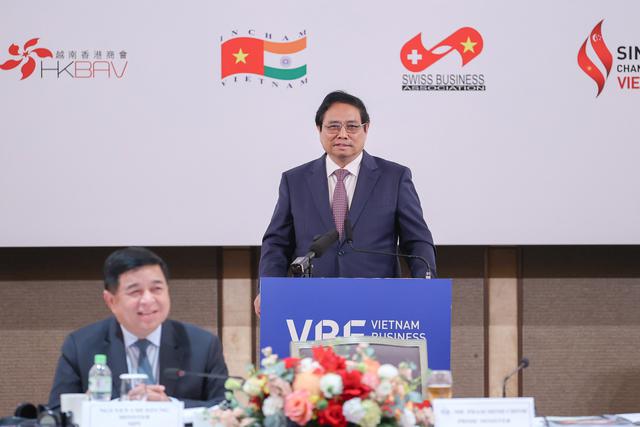
(Photo: VGP)
Prime Minister Pham Minh Chinh emphasized the crucial role of the FDI sector in enhancing Vietnam's economy, particularly in driving innovation, improving regulatory frameworks, and advancing national governance. Despite its contributions, the FDI sector faces challenges such as technology transfer limitations and weak connections with domestic businesses.
In charting its course towards green growth, Vietnam prioritizes sustainability alongside digital transformation, recognizing it as fundamental to economic restructuring and productivity enhancement. Rejecting the "grow first, clean up later" model, Vietnam aims for a seamless transition from conventional to green growth, harnessing both domestic and international resources to build a sustainable future in alignment with the fourth industrial revolution.


